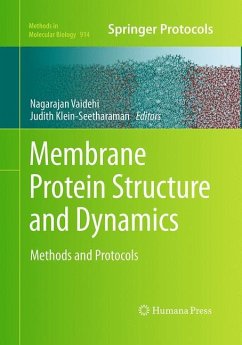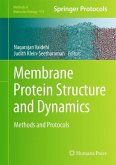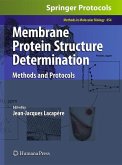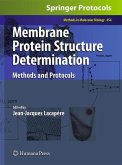Membrane proteins play key roles in numerous cellular processes, in particular mediating cell-to-cell communication and signaling events that lead to a multitude of biological effects. Membrane proteins have also been implicated in many critical diseases such as atherosclerosis, hypertension, diabetes and cancer. In Membrane Protein Structure Predictions Methods: Methods and Protocols, expert researcher in the field detail the advances in both experimental and computational approaches of the structure, dynamics and interactions of membrane proteins dividing the volume into two sections. The first section details the procedures used for measurements of structure and dynamics of membrane proteins. While the second section contains a survey of the computational methods that have played a critical role in membrane protein structure prediction as well as in providing atomic level insight into the mechanism of the dynamics of membrane receptors. Written in the highly successful Methods in Molecular Biology(TM) series format, the chapters include the kind of detailed description and implementation advice that is crucial for getting optimal results in the laboratory.
Thorough and intuitive, Membrane Protein Structure Predicitons: Methods and Protocols seeks to aid scientists in the further study of membrane protein structure and function.
Thorough and intuitive, Membrane Protein Structure Predicitons: Methods and Protocols seeks to aid scientists in the further study of membrane protein structure and function.








